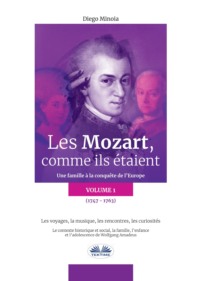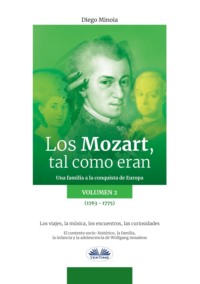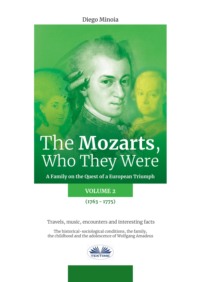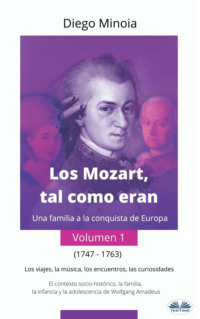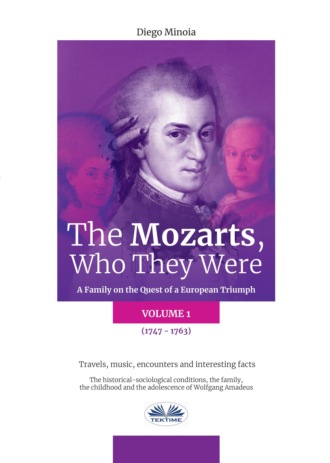
Полная версия
The Mozarts, Who They Were (Volume 1)
Undoubtedly, the foundation of his musical formation imparted by his father, combined with the experiences of a life full of many European journeys, gave him passage into a world that very few of his peers could have only dreamed about. From his letters and from what other sources tell us, however, Wolfgang never developed a passion for anything that was not musical. Of the monuments and artistic masterpieces that he had seen in the various cities visited, he never left a written comment. Likewise for any literature that he may have read.
He writes to his mother from Milan about a hanging that he witnessed (he had also seen one in Lyon) without mentioning, for example, the Duomo, Leonardo da Vinci's "The Last Supper" or any work of art housed in the city. Neither was Wolfgang a great reader. We know that he read "One Thousand and One Nights", some stories, a few comedies by Molière and Goldoni, and of course, many librettos of opera which were useful for his favorite diversion: creating the melodramma.
Hence, a human being deprived of educational experiences typical of the various developmental phases that he never found in the culture (or in literature, a wealth of potential inspiration toward education, discussion and debate) that would have rivaled the excessive power of his interior musical world. We could compare Wolfgang to the custom used in Paris in his epoch which speaks of the cultural preparation of the ladies-in-waiting for their entry into society from the convents and boarding schools reserved for nobility, who "knew everything without having learned anything". But, in contrast to the above-mentioned ladies, he never learned to truly "be a member of society", to understand human nature (on an individual level or publicly) or to conform to that which was considered appropriate for a person of his social station.
Artistically speaking, he was honest and sincere, even to a self-destructive fault...and this led him to the solitude of the last years of his life. We could cite "The Solitude of Prime Numbers", alluding him to the famous Italian novel...and he was certainly a prime number, undividable if not to himself and the nature of individualism. The first number, whose dividing relationship with the prime number only served to put him in front of his own image. The prime number contains all numbers (attainable through multiplication) and so this is how we are able to discern all of the principle composers of his epoch and every single developmental phase of form and expressive innovations of which they are characterized. In my opinion, all of the aspects of his formation explain that quality of the inability to live and integrate positive relations with other humans that would characterize the brief adult life of Mozart. We will take a closer look at these aspects in due time, based on the correspondence with his father and sister.
Конец ознакомительного фрагмента.
Текст предоставлен ООО «ЛитРес».
Прочитайте эту книгу целиком, купив полную легальную версию на ЛитРес.
Безопасно оплатить книгу можно банковской картой Visa, MasterCard, Maestro, со счета мобильного телефона, с платежного терминала, в салоне МТС или Связной, через PayPal, WebMoney, Яндекс.Деньги, QIWI Кошелек, бонусными картами или другим удобным Вам способом.


